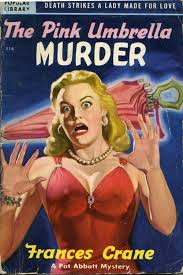A brief post on the work of my favourite author for Friday’s Forgotten Books over at Patti Abbott’s blog Pattinase.
A couple of days ago, I visited my favourite book haunt in the suburb where I live and found, not to my surprise, a whole new pile of secondhand paperbacks. I bought two novels by my favourite author Jack Higgins (Harry Patterson) for Rs.25 each, less than 50 cents. I have read more than half of Higgins’ books and as some of my blog friends will concur, his earliest novels, up to The Eagle Has Landed (1975), are his best. Thereafter, the quality of his work has somewhat declined, though I still enjoy reading his mild thrillers.
I like the way Jack Higgins tells his stories — the style is clean and uncomplicated, and conversational; there is minimum description of people and places; the heroes are usually mercenaries with a heart of gold, and quite endearing; and the plots are simplistic but not unbelievable. He often makes covert operations look ridiculously easy; where the guardians of justice often get in and out of unlikely places and extreme situations without so much as a scratch. In The White House Connection, for instance, Sean Dillon, one of his most popular characters, walks into the White House as if he were entering his own home. Some of the heroes are reformed IRA hitmen and work for British Intelligence as nameless operatives.
What I like about his battle-scarred heroes is the way he romanticises them — I’d describe them as poets with a gun in their hand.
These were the two titles I added to my collection of Jack Higgins.
Sheba, 1994
A couple of days ago, I visited my favourite book haunt in the suburb where I live and found, not to my surprise, a whole new pile of secondhand paperbacks. I bought two novels by my favourite author Jack Higgins (Harry Patterson) for Rs.25 each, less than 50 cents. I have read more than half of Higgins’ books and as some of my blog friends will concur, his earliest novels, up to The Eagle Has Landed (1975), are his best. Thereafter, the quality of his work has somewhat declined, though I still enjoy reading his mild thrillers.
I like the way Jack Higgins tells his stories — the style is clean and uncomplicated, and conversational; there is minimum description of people and places; the heroes are usually mercenaries with a heart of gold, and quite endearing; and the plots are simplistic but not unbelievable. He often makes covert operations look ridiculously easy; where the guardians of justice often get in and out of unlikely places and extreme situations without so much as a scratch. In The White House Connection, for instance, Sean Dillon, one of his most popular characters, walks into the White House as if he were entering his own home. Some of the heroes are reformed IRA hitmen and work for British Intelligence as nameless operatives.
What I like about his battle-scarred heroes is the way he romanticises them — I’d describe them as poets with a gun in their hand.
These were the two titles I added to my collection of Jack Higgins.
Sheba, 1994
The Lost Temple of Sheba is not just a biblical legend. A German archaeologist has found it. The Nazis have claimed it. And one American explorer has stumbled upon their secret — a plot that could change the course of World War II.
The year is 1939. An American archaeologist named Gavin Kane is asked to help a woman search for her missing husband.When Kane follows the man's trail into the ruthless desert of Southern Arabia he makes two shocking discoveries. One is the legendary Temple of Sheba, an ancient world as fantastic as King Solomon's Mines. The other is a band of Nazi soldiers who plan to turn the sacred landmark into Hitler's secret stronghold…
— HarperCollins
The President’s Daughter, 1997
— HarperCollins
The President’s Daughter, 1997
“Twenty years after his affair with a beautiful Frenchwoman in Vietnam, Jake Cazalet finds out he has a daughter. He must keep it a secret—but years later, when he is President of the United States, someone discovers the truth. And when his only child is kidnapped by a terrorist group, he must count on British operative Sean Dillon and FBI agent Blake Johnson to find her.”
— Amazon
— Amazon









